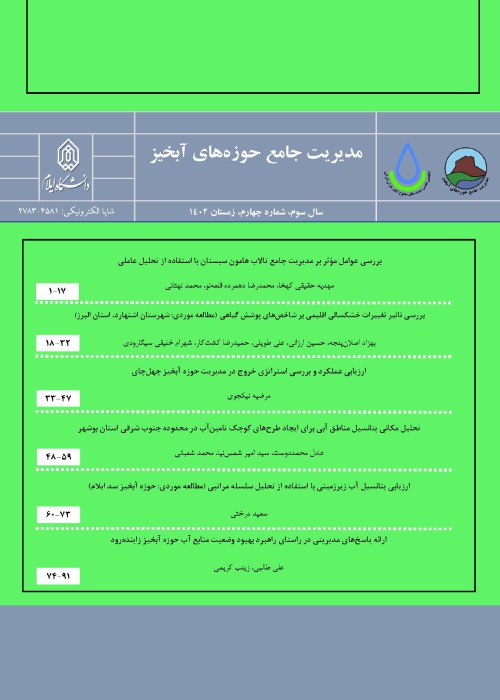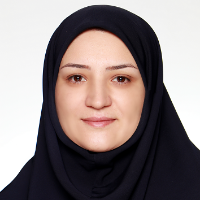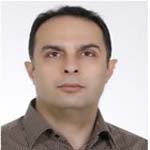The Role of Pollutants on Health and the Environment with Emphasis on Social Resilience (A Study Based on Pollutants in Arak)
Paying attention to the impact of pollutants on human health is of particular importance. Air pollution is now one of the significant environmental and economic problems globally, and this crisis is more severe in large industrial cities. Air pollution has caused a sharp increase in various respiratory and skin diseases, congenital disabilities, physical weakness, and many other diseases. On the other hand, the costs to eliminate these pollutions are remarkable (Rouhi & Khezri, 2014). Finding the optimal emission limits has always been a challenging issue for economic planners and city managers for two reasons. First, there is a desire for the economic development of each city (and the country at higher levels). Second, the strength and resilience of the city towards the absorption of the pollutants is a limiting factor. Not paying attention to this principle and imposing more pollutants than the ability to absorb and purify the ecosystem cause severe air pollution with harmful effects on humans and the environment (Ghodsi Ma’ab, 2016). Considering that Arak city has been introduced as one of the most polluted cities in the world according to the statistics of the World Health Organization, especially in terms of particulate matter (Rezaei Vandchali et al., 2017), studies on the effects of air pollution on social resilience of this city can be useful for proper city management and community health.
The city of Arak is the capital of the Markazi province and is located in the southwest of Tehran province, at a distance of 288 km. Arak covers an area of 98.7178 km2, 4.24% of the total area of the province. The city of Arak is located on the orbit of 34° and 5ʹ and 30ʺ in the northern hemisphere of the equator and on the meridian 49° and 41ʹ and 30ʺ east longitude of the Greenwich meridian. The plateau of Arak has an area of 5400 km2, of which 2400 km2 includes the high plain of Arak, and the rest is the heights around Arak. This study aimed to investigate the effects of air pollution on the social resilience of residents in Arak in 2019. The method of research was descriptive in a causal-comparative form, using a questionnaire. The population included all Arak residents and 283 volunteer respondents (153 females and 125 males) filled in the questionnaire which was done by voluntary sampling method. The social resilience questionnaire included 50 questions representing 50 research variables in eleven aspects: social solidarity, awareness, resource diversity, flexibility, security, trust, communication, participation, social support, social solidarity, and air pollution (Table 3). The validity of the questionnaire was investigated by the experts in the field and was confirmed after reviewing the proposed amendments. Moreover, the reliability of the questionnaire was evaluated by calculating the Cronbach’s alpha method, and its value was 0.78. Therefore, the social resilience questionnaire could be implemented in the population. The questionnaire also gathered the respondents’ demographic information, including age, gender, residence history, education level, ownership status, and occupation.
Three hypotheses were proposed to investigate the effects of air pollution on the social resilience of citizens in various regions of Arak. To investigate the hypotheses, using the data of Environment Organization of Markazi Province, air quality indicators in 2019 were received from three active stations of Ostandari, Shariati, and Horiba. Three indicators of CO, NO2, and PM2.5 were selected as air quality indicators based on most of the daily data reported during the year. After selecting the social resilience variables and evaluating the questionnaire’s validity and reliability, first, three regions related to three active stations, and for comparison, three more regions in the study area, namely, Hepco, Mokhaberat, and Aqil-Abad, were considered during the investigations. The copies of the prepared questionnaire were distributed among the regions’ residents who volunteered to respond to the questions. It can be said that only the third hypothesis that there is a significant difference between the effect of air pollution indicators (CO, NO2 and PM2.5) on social resilience of residents in various regions of Arak was confirmed, which was in line with the results of Suarez et al. (2016), Johnson Jr (2004), Pluhar et al. (2009), Ghorbani et al. (2017) and Mehranpour & Ebrahimi Ghavamabadi. (2016). In explaining the result of the third hypothesis, we can refer to the living conditions of the citizens. As an industrial center of the country with a large number of factories and urban traffic, especially with outdated vehicles that have increased pollutants, Arak has faced warning conditions due to increasing pollutants with impacts on climate change, environment, and human health.
- حق عضویت دریافتی صرف حمایت از نشریات عضو و نگهداری، تکمیل و توسعه مگیران میشود.
- پرداخت حق اشتراک و دانلود مقالات اجازه بازنشر آن در سایر رسانههای چاپی و دیجیتال را به کاربر نمیدهد.




